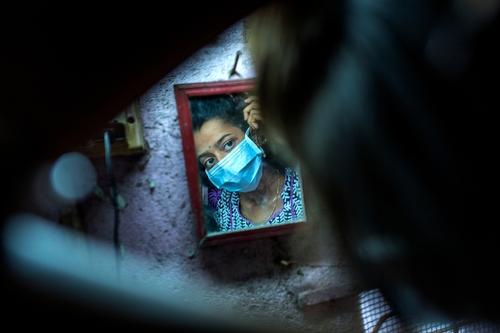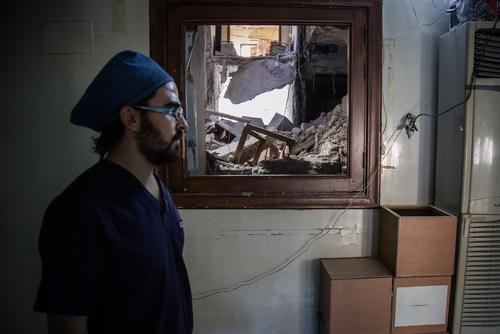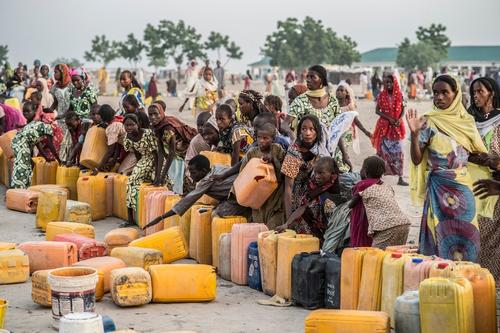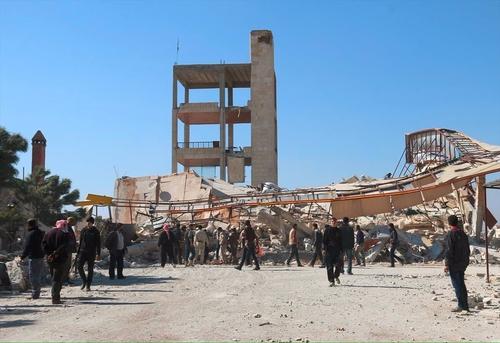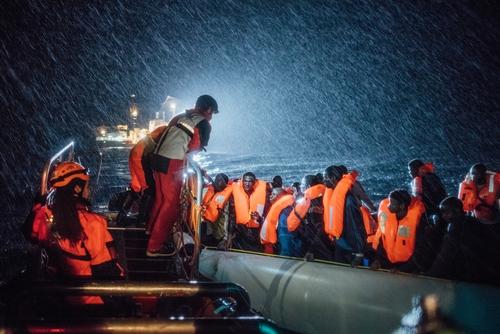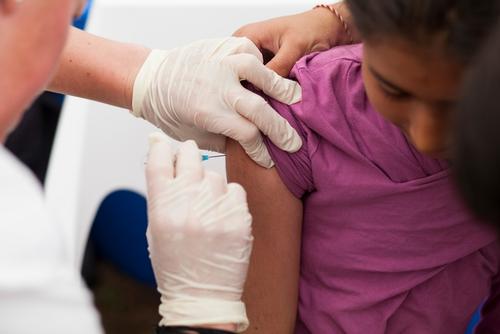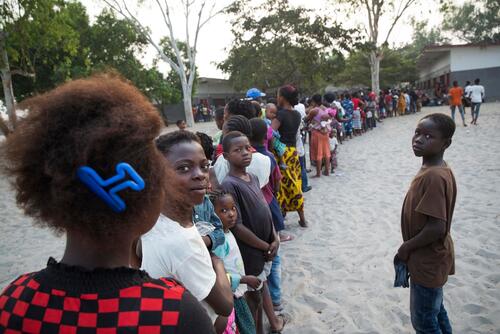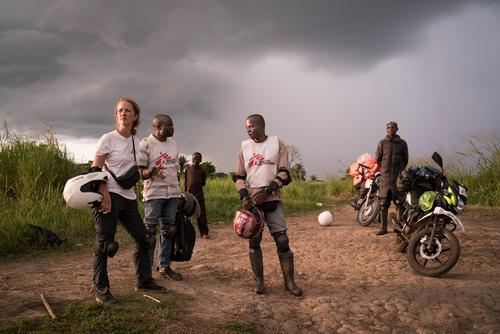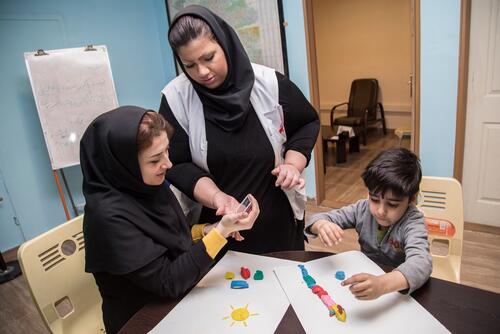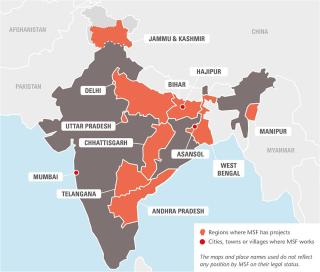
66,500
66,5
3,500
3,5
1,800
1,8

1,300
1,3
Chhattisgarh
In Chhattisgarh, where ongoing low-intensity conflict has left much of the local population with limited or no access to healthcare, MSF runs mobile clinics in remote areas, offering reproductive healthcare, vaccinations and treatment for TB, malaria and skin diseases. In 2016, teams conducted 50,057 outpatient consultations, treated 9,094 malaria patients and administered 2,872 vaccinations.
At MSF’s 15-bed mother and child health centre in Bijapur, staff assisted 312 deliveries and carried out 5,419 antenatal consultations in 2016. The centre provides outpatient services for mothers and children, including TB treatment and vaccinations.
Delhi
Umeed ki Kiran (Ray of Hope), MSF’s community-based clinic in north Delhi, offered medical and psychological care to 98 victims of domestic and sexual violence this year. In addition, 298 counselling sessions were conducted.
MSF’s outreach team also raised awareness about the importance of seeking timely medical and psychological care, and engaged the community in discussions on domestic violence, sexual assault and child abuse.
MSF’s mental health team trained 164 accredited social health activists in identifying signs and symptoms of sexual and gender-based violence.
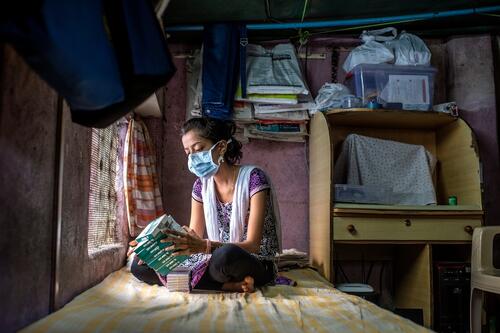
Mental health in Jammu and Kashmir
Since 2001, MSF has provided counselling services to people affected by conflict in Jammu and Kashmir. Following an outbreak of violence in July 2016, the team gave psychological first aid to victims of trauma and donated over two tons of medical supplies.
In May, MSF released the first ever comprehensive survey on the state of mental health across 10 districts in Jammu and Kashmir. Conducted in collaboration with Kashmir University and the Institute of Mental Health and Neurosciences, the survey found significant symptoms of mental distress in 45 per cent of adults, highlighting the need for comprehensive and decentralised prevention, care and treatment programmes in the Kashmir Valley.
Specialist care for HIV, TB and hepatitis C in Manipur
MSF provides screening and treatment for HIV, drug-resistant TB (DR-TB) and hepatitis C at three clinics in Manipur. This year, MSF started 294 patients on antiretroviral therapy, initiated treatment for 122 patients co-infected with hepatitis C, and performed 251 counselling sessions.
Bihar
Half of all cases of kala azar worldwide are in India, and 80 per cent of these are in Bihar. MSF handed over its long-running primary kala azar project to the government in 2015 and now, in partnership with the Rajendra Memorial Research Institute of Medical Science in Patna, concentrates on treating kala azar patients co-infected with HIV, a growing health issue affecting the most vulnerable sections of society. MSF treated 79 HIV patients co-infected with kala azar this year.
In April 2016, after more than 1,000 houses were gutted by fire in Bihar’s Darbhanga district, an MSF team distributed relief items, including shelter kits, jerry cans, mosquito nets and kitchen utensils, to 960 people.
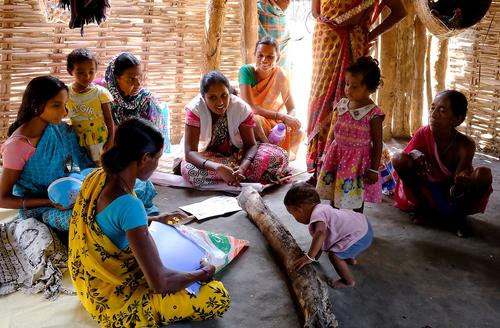
West Bengal
The densely populated urban slums of West Bengal are frequently affected by outbreaks of infectious diseases such as malaria, dengue, chikungunya and Japanese encephalitis. Poor diagnosis and case detection and the lack of referral options for complicated cases have made the migrant and floating populations in these areas very vulnerable.
In late 2015, in collaboration with the government of West Bengal, MSF initiated a project on febrile illnesses in the Asansol district of Burdwan with the aim of improving access to diagnosis and treatment for scrub typhus, typhoid, malaria and leptospirosis, and especially dengue, in both children and adults. This year, teams at Asansol district hospital and surrounding primary health centres screened 101,519 patients, and identified and treated 11,374 cases of acute fever and 1,425 cases of acute undifferentiated fever. MSF also served as a referent laboratory in Asansol for the confirmation of dengue infection. In addition, MSF reported the first cases of scrub typhus in the district after carrying out testing there.
Mumbai
In Mumbai, MSF provides medical and psychosocial care for patients with HIV and DR-TB through four projects. The team is developing patient-centred models of care, and trying to influence India’s treatment guidelines. At MSF’s clinic in the city, many patients have complex drug-resistance patterns, requiring treatments that are not available in the public health system. The team treated 74 DR-TB patients and 134 HIV patients this year.
In collaboration with the Revised National Tuberculosis Control Programme, MSF opened a TB outpatient department at Shatabdi hospital in June. MSF also supports five health posts in the community, providing early case detection, diagnosis and treatment. The team diagnosed 469 cases of TB and 422 of DR-TB between June and December.
MSF has agreed to support the implementation of routine viral load testing and systematic screening of TB signs and symptoms in HIV patients at King Edward Memorial Hospital, thereby helping to monitor patients’ adherence to treatment and allowing for timely transfer to second- and third-line treatments if resistance is detected.
A small team of MSF counsellors continues to provide psychosocial support in several TB hospitals in Sewri, south Mumbai.
Uttar Pradesh
MSF teams undertook an extensive fact-finding mission in northern India to find the most appropriate place to set up a hepatitis C treatment programme. They chose Meerut, a city with a million inhabitants in Uttar Pradesh, and will treat the first patients in January 2017.



